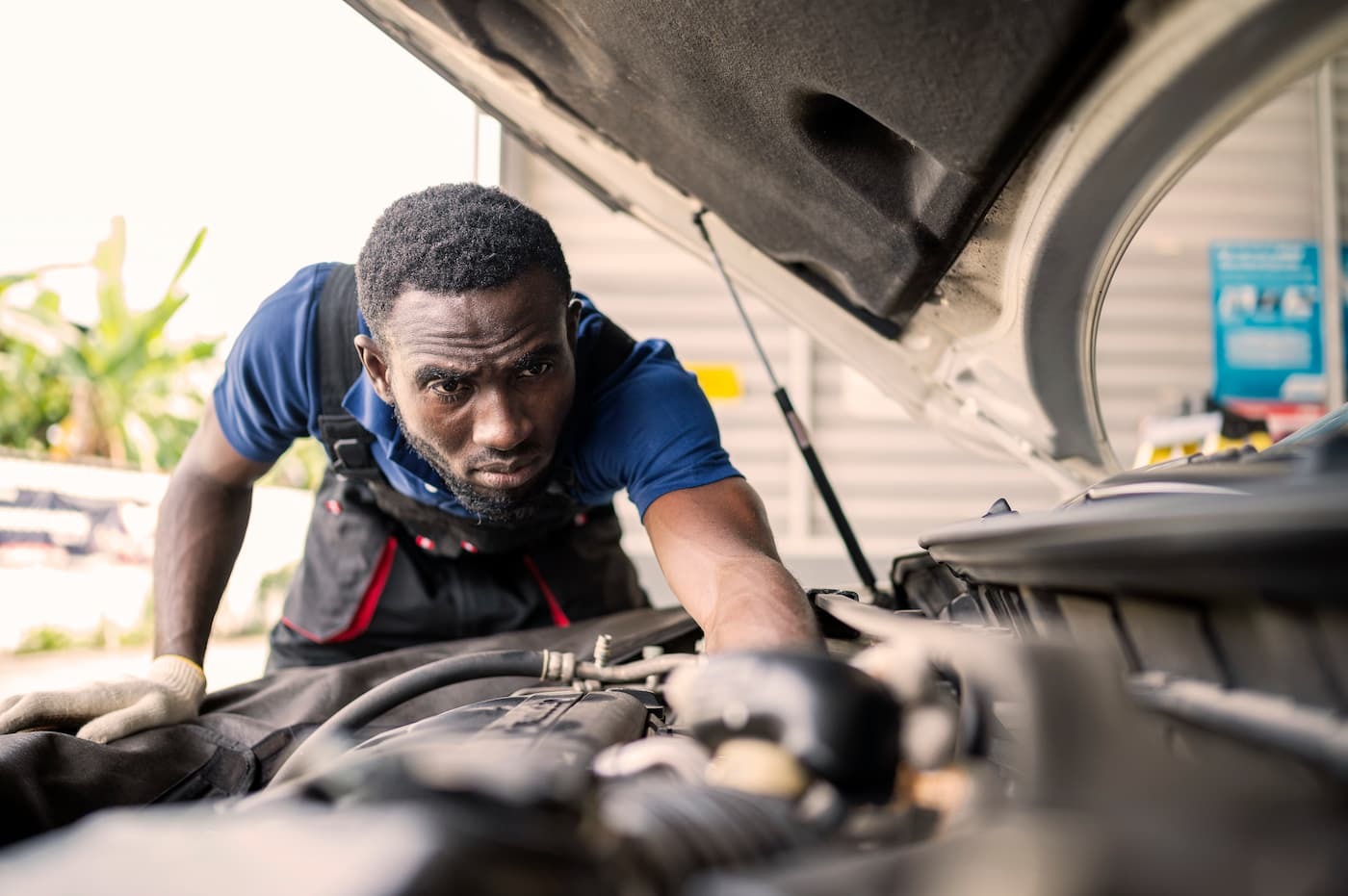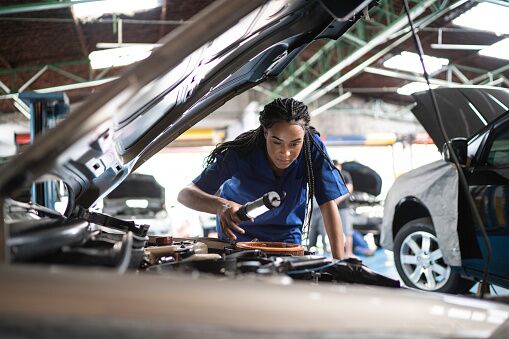All Categories
Featured
Brakes are perhaps the most vital security feature of any type of vehicle. Without reputable brakes, also the most powerful cars and truck can end up being a threat on the road.
- The Value of Routine Brake Inspections. Brakes undertake constant deterioration with every usage, whether you're driving at high rates on the highway or travelling via city streets. With time, brake pads, blades, and other elements wear down, which can impact stopping performance. Without routine inspections, you may not see the steady reduction in efficiency until it's as well late.
Regular brake inspections permit you to capture issues early, making certain that your brakes stay receptive, reputable, and risk-free. Timely evaluations can also conserve you money by dealing with minor concerns before they come to be costly repairs.
- Typical Indicators That Your Brakes Need Attention. While routine brake assessments are essential, there are some indication you can keep an eye out for to know when it's time to schedule a check-up:
Squealing or Grinding Appears: High-pitched squeaks or grinding noises when using the brakes are typically signs that your brake pads are broken and require substitute. Vibration or Pulsation: If you feel resonances in the steering wheel or the brake pedal, it might indicate deformed rotors, which may require resurfacing or replacing. Soft or Squishy Brake Pedal: If the brake pedal really feels uncommonly soft or spongy, there might be air in the brake lines or a trouble with the master cylinder. Drawing away: If your auto pulls to one side while braking, this might be brought on by uneven brake pad wear or a problem with the brake fluid. Increased Quiting Range: If it takes longer to stop than typical, it might suggest that the brake pads are used, the liquid is reduced, or the rotors are damaged. If you see any of these symptoms, it's finest to have your brakes checked immediately.

- Key Elements Checked During Brake Inspections. During a brake evaluation, a service technician will check numerous essential parts of the braking system to make sure whatever is working properly. Here are the key parts entailed:
Brake Pads: One of the most typical factor for inadequate stopping performance is damaged brake pads. Inspecting the thickness of the pads is a top priority throughout every examination. Brake Rotors: Blades ought to be smooth and devoid of grooves or fractures. Any kind of substantial damages to the rotors might result in compromised braking performance and unequal pad wear. Brake Fluid: Reduced or infected brake liquid can impair braking efficiency. The specialist will certainly inspect the fluid degrees and quality and change it if needed. Brake Lines and Pipes: Brake lines should be complimentary of leakages or splits. Any kind of damages to the lines can cause loss of brake liquid, leading to brake failure. Brake Calipers: The calipers use pressure to the brake pads. They ought to be checked for indicators of wear or leaks to guarantee they are functioning correctly. Frequently examining these components assists maintain your brake system in peak problem, permitting you to stop your auto securely and effectively.
- Just how Typically Should You Have Your Brakes Inspected? The general referral is to have your brakes checked at least yearly or every 12,000 miles, depending upon your driving practices. Nevertheless, specific driving problems may call for even more frequent evaluations:
Rush Hour: If you commonly drive in stop-and-go website traffic, your brake pads will certainly put on down quicker. Mountain Driving: Driving on steep roadways needs more regular stopping, which can create your brakes to put on faster. Towing or Hauling Heavy Plenties: If you routinely lug hefty loads, your brakes will experience extra anxiety and call for more regular evaluations. If you discover any one of the indication discussed earlier, don't wait on the next scheduled inspection-- have your brakes checked quickly.
- The Repercussions of Neglecting Brake Inspections. Neglecting normal brake inspections can result in severe effects. A falling short brake system might cause reduced quiting power, which raises your danger of mishaps. Disregarding brake upkeep can also result in more pricey repair work. For instance, if you delay changing worn brake pads, the damages might reach the blades, bring about the requirement for rotor substitute, which is a much more expensive repair.
In the most awful situation, driving with harmed brakes can lead to finish brake failure, putting you and various other drivers in jeopardy. Normal brake evaluations are a small financial investment that can conserve your life and stop pricey repairs.
- Verdict: Remain Safe with Regimen Brake Inspections. Brakes are not something you wish to take opportunities with. A trustworthy braking system is necessary for risk-free driving, and regular brake examinations are a straightforward way to ensure that your car stops when you need it most. By remaining on top of brake upkeep, looking for cautioning indications, and having your brakes evaluated at the recommended periods, you'll protect both your vehicle and your security.
Don't wait up until your brakes start to fall short-- timetable regular brake examinations and keep your lorry in ideal problem for many years ahead.
Latest Posts
Discover WyHy FCU – Comprehensive Support for Your Financial Success
Explore Brake Repair & More: Comprehensive Repair Options from Montclare Auto Repair
Why Consistent Auto Maintenance at Montclare Auto Repair Reduces Costs
More
Latest Posts
Discover WyHy FCU – Comprehensive Support for Your Financial Success
Explore Brake Repair & More: Comprehensive Repair Options from Montclare Auto Repair
Why Consistent Auto Maintenance at Montclare Auto Repair Reduces Costs
